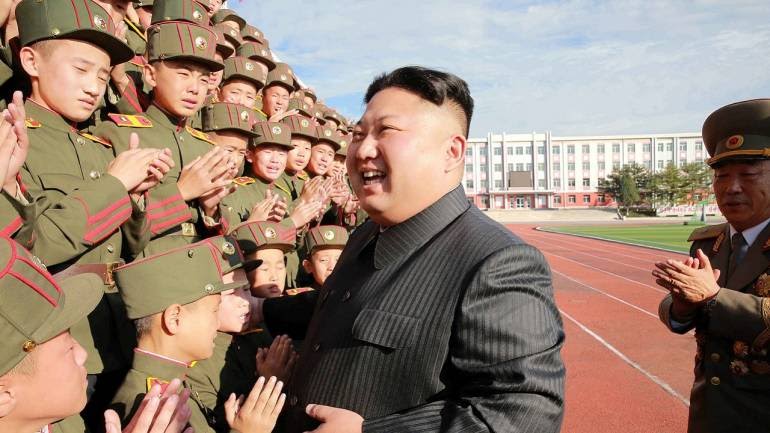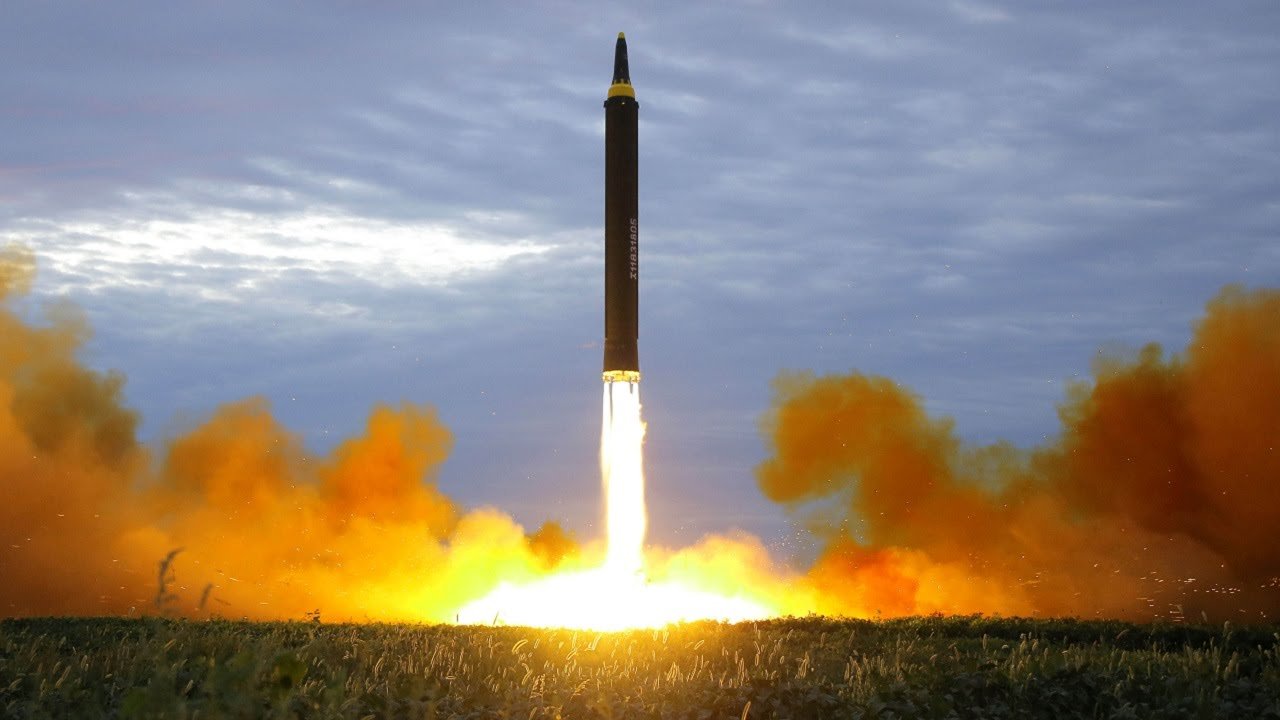 On November 29, 2017, North Korea, following orders from its ‘Supreme Leader’ Kim Jong-un, tested its most powerful missile yet, the Hwasong-15, which has all of mainland US, India and global cities like Paris, London, Dubai, Barcelona, Sydney and Tokyo within its reach. On November 29, 2017, North Korea, following orders from its ‘Supreme Leader’ Kim Jong-un, tested its most powerful missile yet, the Hwasong-15, which has all of mainland US, India and global cities like Paris, London, Dubai, Barcelona, Sydney and Tokyo within its reach.
On November 29, 2017, North Korea, following orders from its ‘Supreme Leader’ Kim Jong-un, tested its most powerful missile yet, the Hwasong-15, which has all of mainland US, India and global cities like Paris, London, Dubai, Barcelona, Sydney and Tokyo within its reach. On November 29, 2017, North Korea, following orders from its ‘Supreme Leader’ Kim Jong-un, tested its most powerful missile yet, the Hwasong-15, which has all of mainland US, India and global cities like Paris, London, Dubai, Barcelona, Sydney and Tokyo within its reach.
With this, Kim Jong-un has underlined his nuclear credentials, pitting him against other nuclear powers like the US, UK, Russia and France. Nuclear deterrence is under debate once again, and if history is anything to go by, Kim Jong-un will never give up his nuclear toys.
With this, Kim Jong-un has underlined his nuclear credentials, pitting him against other nuclear powers like the US, UK, Russia and France. Nuclear deterrence is under debate once again, and if history is anything to go by, Kim Jong-un will never give up his nuclear toys.
Apart from compromising his country’s defence, giving up the nukes won’t serve Kim’s self-interest either. Two instances from recent history illustrate the perils of cooperating with the wider world: The fall of dictators Saddam Hussein of Iraq and Muammar Gaddafi of Libya.
Apart from compromising his country’s defence, giving up the nukes won’t serve Kim’s self-interest either. Two instances from recent history illustrate the perils of cooperating with the wider world: The fall of dictators Saddam Hussein of Iraq and Muammar Gaddafi of Libya.
Iraq under Saddam Hussein - who ruled for more than two decades – was declared nuke-free by the International Atomic Energy Agency (IAEA) as early as 1994. A US-led Iraq invasion followed in 2003, after allegations that Saddam had a stockpile of weapons of mass destruction – an unverified claim. He was hanged to death in 2006 - 12 years after IAEA declared Iraq nuke free.
Iraq under Saddam Hussein - who ruled for more than two decades – was declared nuke-free by the International Atomic Energy Agency (IAEA) as early as 1994. A US-led Iraq invasion followed in 2003, after allegations that Saddam had a stockpile of weapons of mass destruction – an unverified claim. He was hanged to death in 2006 - 12 years after IAEA declared Iraq nuke free.
Libya ruler Muammar Gaddafi agreed to eliminate the country’s nuclear weapons programme in 2003. British and American experts, along with the IAEA, dismantled the programme in 2004. During the Arab Spring in 2011, rebels rose against Gaddafi. To control the unrest, NATO sent war planes to bomb government positions. A group of rebels captured Gaddafi and killed him the same year – eight years after he voluntarily gave up nuclear weapons.
Libya ruler Muammar Gaddafi agreed to eliminate the country’s nuclear weapons programme in 2003. British and American experts, along with the IAEA, dismantled the programme in 2004. During the Arab Spring in 2011, rebels rose against Gaddafi. To control the unrest, NATO sent war planes to bomb government positions. A group of rebels captured Gaddafi and killed him the same year – eight years after he voluntarily gave up nuclear weapons.
India and Pakistan are clear examples of nuclear deterrence in practice. Israel, for instance, follows the policy of ‘nuclear ambiguity’ where it is believed that it possesses nuclear weapons but it hasn’t officially admitted to having them. In either case, the motto is to avoid war/destruction and ensure safety through a threat. Kim Jong-un is doing the same. There could be other reasons why he won’t give up the nukes but as a declared nuclear state, North Korea is perhaps more insulated from attack; more to the point, Kim himself certainly is. (Source: Why Kim Won't Give Up His Nukes)
India and Pakistan are clear examples of nuclear deterrence in practice. Israel, for instance, follows the policy of ‘nuclear ambiguity’ where it is believed that it possesses nuclear weapons but it hasn’t officially admitted to having them. In either case, the motto is to avoid war/destruction and ensure safety through a threat. Kim Jong-un is doing the same. There could be other reasons why he won’t give up the nukes but as a declared nuclear state, North Korea is perhaps more insulated from attack; more to the point, Kim himself certainly is.
Authors get paid when people like you upvote their post.
If you enjoyed what you read here, create your account today and start earning FREE STEEM!
If you enjoyed what you read here, create your account today and start earning FREE STEEM!
Hi! I am a robot. I just upvoted you! I found similar content that readers might be interested in:
http://www.moneycontrol.com/news/world/north-korea-why-kim-jong-un-wont-ever-give-up-his-nuclear-weapons-2450169.html
Downvoting a post can decrease pending rewards and make it less visible. Common reasons:
Submit